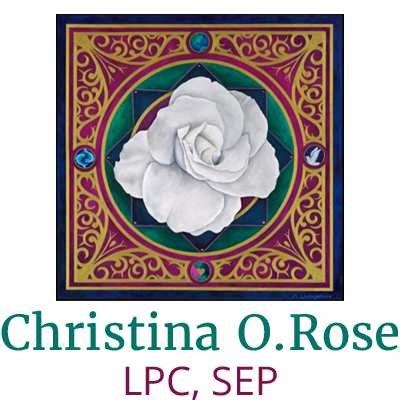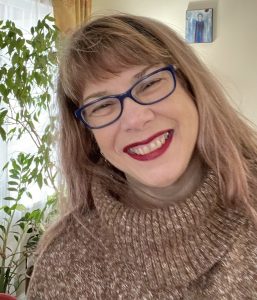I’m a life-long learner, so my personal history explains what’s important to me as a counselor.
My intuition is a constant in my life. By the time I was eight, I knew that events and relationships affected the behavior of people around me, picking up on mismatches between how people felt and how they behaved. As a young woman, if I walked into an elevator full of strangers, I became aware of their pain, anger, or grief.
My intuition serves me as a counselor, letting me fully witness people’s pain in the context of a therapeutic relationship as I help them hold it until they feel ready to let it go.
Like many, I had some difficult childhood experiences. Early on, I sensed that having someone to talk to would help. That wasn’t always an option in my family, so I turned to other caring adults: neighbors and friends’ parents.
My personal history helps me empathize with and understand my clients’ painful experiences, and I’m also certain that turning to others can be safe, important, and healthy. I know what it feels like to be genuinely cared for–and I know that my clients deserve nothing less from me.
I sought counseling in my early twenties when I realized my earlier life experiences negatively impacted my relationships, and I periodically saw the same wonderful counselor until she retired. In addition to helping me unravel the impact of my childhood on my life, she provided the foundation for what a good counseling relationship looks and feels like.
My bachelor’s degree in history at Lewis and Clark College focused on world cultures and the cultural experience of oppression. Deepening my understanding of the dynamics and effects of oppression was also good preparation for counseling.
A few years later, I earned a masters’ degree in counseling at Lewis and Clark. I worked in community mental health before opening my practice, where I came to understand that community is essential to growth and healing. No one can heal in isolation, and I’m very good at helping people find the right resources.
After becoming a counselor, I was fortunate to do my own psychoanalysis with a very talented analyst. My work with her deepened my understanding of the human spirit, the importance of being held capable, and treating one as an equal in the process of healing. She continues to be a role model for humor, compassion and grace.
Talk therapy is very important, but words alone can’t heal psychic wounds. Emotional experiences ‘get under our skin,’ becoming physically embodied, so augmenting talk therapy with body-centered modalities is the key to full healing. Because of my understanding and belief about treating the “whole self,” I co-founded Numinosity, A Sanctuary for Wellness, with Gina C. James a licensed massage therapist, Reiki Practitioner and Spiritual Director.
Most recently, I finished a three year training program in Somatic Experiencing Therapy through the Somatic Experiencing Trauma Institute founded by Peter Levine. My training included 216 classroom hours and over 30 hours of individual and consultation to gain my Somatic Experience Practitioner Certificate.
Associations
- EMDRIA
- Somatic Experiencing Trauma Institute (SETI)




